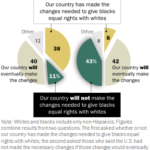Washington, D.C., 2/11/15 — William Julius Wilson, a distinguished sociologist and African-American scholar, will be a scholar-in-residence at the Library of Congress John W. Kluge Center through May 2015. Librarian of Congress James H. Billington appointed Wilson to the Kluge Chair in American Law and Governance.
Wilson is the Lewis P. and Linda L. Geyser University Professor at Harvard University. He is one of 24 University Professors, the highest professional distinction for a Harvard faculty member.
Regarded as a top thinker on issues of urban poverty, race and class relations, Wilson wrote the 1987 book, “The Truly Disadvantaged: The Inner City, The Underclass and Public Policy,” which is a staple in many college courses. Former President Bill Clinton praised the book as a “stunning volume” on how “the inner cities of our country have crumbled as work has disappeared.”
Wilson will spend four months at the Kluge Center revisiting research on race and inequality found in his earlier works through the lens of recent events. In particular, Wilson will continue to refine theories laid out in his work “The Declining Significance of Race” (1978), where he suggested that economic class was more critical than race in determining future life outcomes.
Toward the end of his tenure, Wilson will deliver a public lecture on the topic of his research.
Wilson also is the author of “More than Just Race” (2009), “The Bridge over the Racial Divide” (1999) and “When Work Disappears” (1996). He was a MacArthur Fellow from 1987 to 1992. He was awarded the National Medal of Science in 1998 and was selected by Time magazine in June 1996 as one of America’s 25 Most Influential People. He serves on the Kluge Center’s Scholars Council.
The Kluge Chair in American Law and Governance, who is appointed by the Librarian of Congress, is a distinguished senior research position in residence at the Library. Using research facilities and services at the Library of Congress, the scholar conducts research that focuses on the development of government in the United States, and on domestic matters of and among the three different branches of government.
Through a generous endowment from John W. Kluge, the Library of Congress established the Kluge Center in 2000 to bring together the world’s best thinkers to stimulate and energize one another, to distill wisdom from the Library’s rich resources, and to interact with policymakers in Washington. For more information about the Kluge Center visit www.loc.gov/kluge/.
The Library of Congress, the nation’s oldest federal cultural institution and the largest library in the world, holds more than 158 million items in various languages, disciplines and formats. The Library serves the U.S. Congress and the nation both on-site in its reading rooms on Capitol Hill and through its award-winning website at www.loc.gov.











